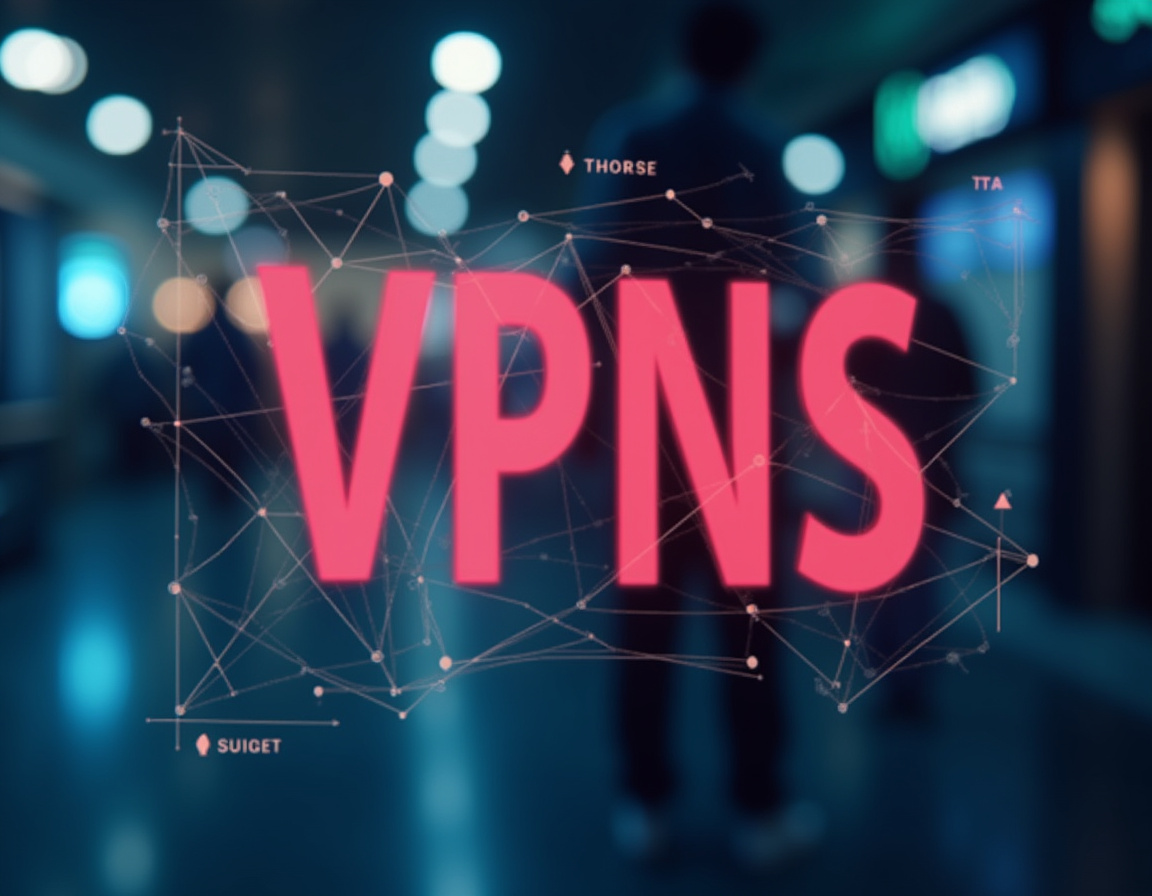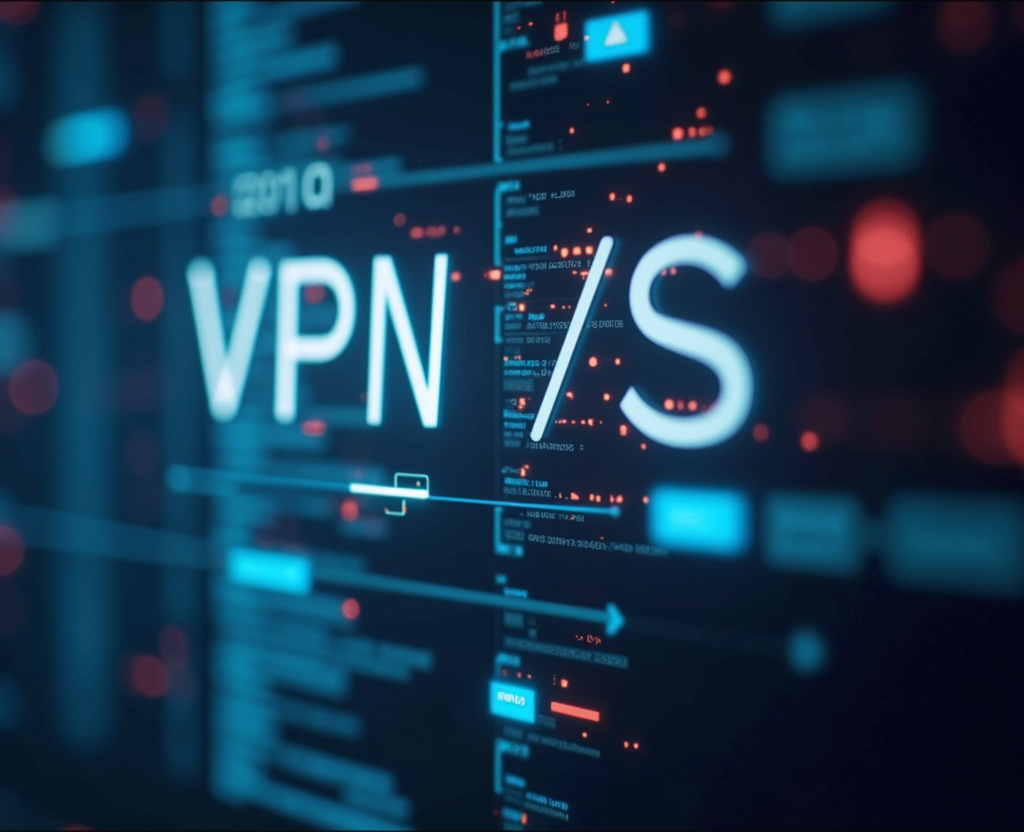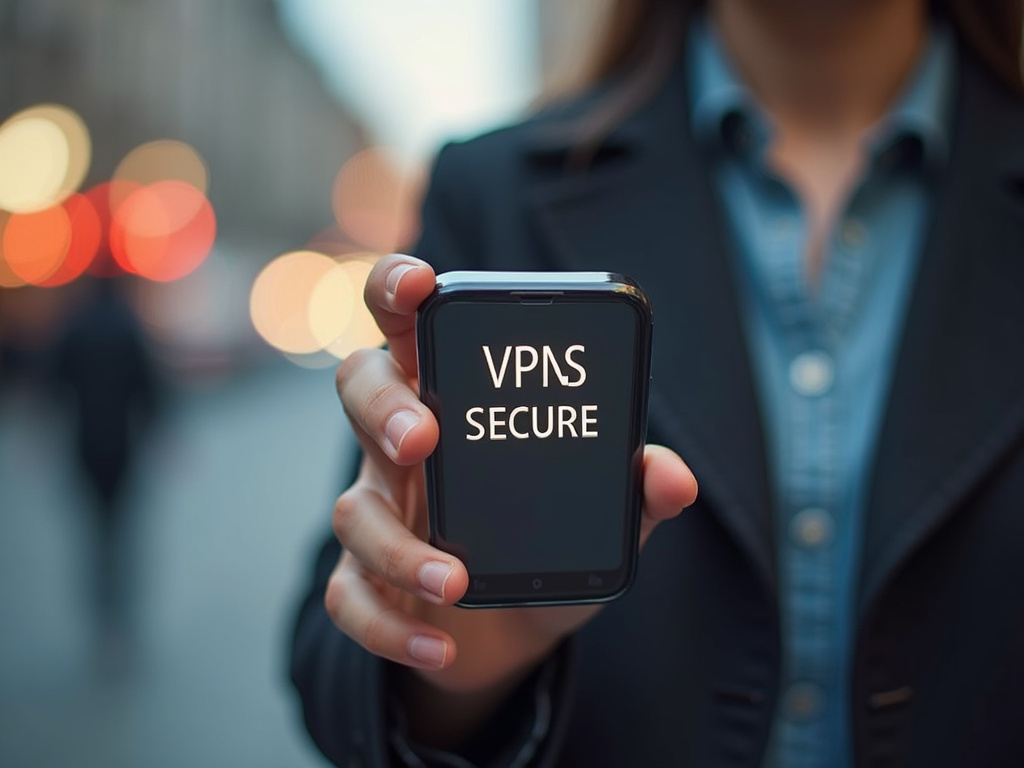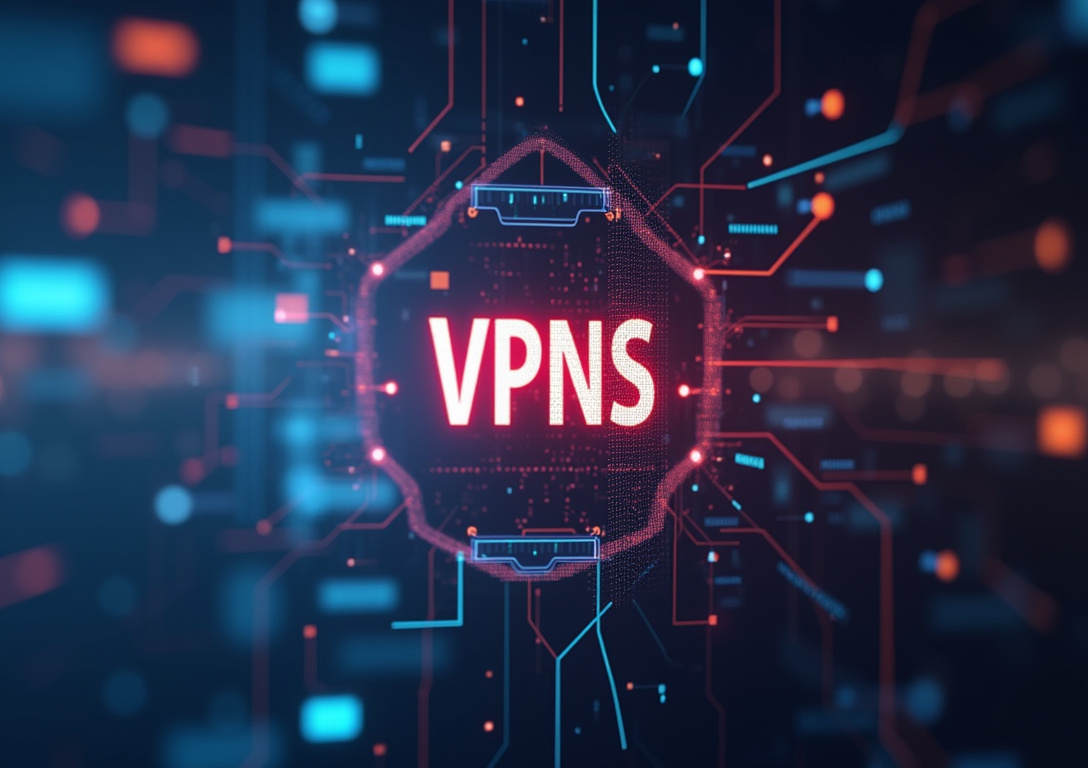VPNs for Car Dealerships: Securing Customer Financing Information

Table of Contents
car dealership VPN
In the contemporary digital landscape, car dealerships are increasingly reliant on technology for various operations, from managing vast inventories and streamlining customer interactions to, critically, handling sensitive customer financing. This surge in digital dependency necessitates robust security measures, with the protection of customer financial data taking center stage. Among the most effective and accessible solutions is the implementation of a Virtual Private Network (VPN).
A serves as a secure tunnel for data transmission, safeguarding sensitive and upholding . This article delves into the paramount importance of VPNs for car dealerships, explores the specific security challenges faced in the automotive retail sector, and outlines how a well-implemented VPN can dramatically enhance data protection and maintain , ultimately bolstering customer trust and ensuring regulatory compliance. The risks associated with unsecured networks are substantial and can have devastating consequences for a dealership.
Dealerships routinely collect and transmit highly sensitive data, including social security numbers, credit scores, banking information, driver's license details, and employment history – all essential for facilitating vehicle financing and completing sales transactions. This information is gathered from various sources, including online applications, in-person interviews, and credit bureau reports. Without adequate protection, this data is vulnerable to interception by malicious actors through various methods, such as man-in-the-middle attacks, eavesdropping on unsecured Wi-Fi networks, and exploitation of software vulnerabilities.
A data breach can result in severe financial repercussions, legal penalties, and irreparable damage to a dealership's reputation. The monetary costs associated with a breach can include expenses related to incident response, customer notification, regulatory fines, legal settlements, and credit monitoring services for affected individuals. Furthermore, the damage to a dealership's brand can be long-lasting, leading to a decline in sales and difficulty in attracting new customers.
Customers who entrust their personal information to a dealership expect it to be handled with the utmost care and security. They are placing their confidence in the dealership to protect their privacy and prevent their data from falling into the wrong hands. A breach of this trust can lead to a loss of customer loyalty and negative publicity.
Disgruntled customers may choose to share their experiences online, spreading negative reviews and potentially driving other customers to competitors. Data security extends beyond regulatory compliance; it is a fundamental requirement for maintaining a positive brand image and fostering long-term customer relationships. Dealerships that prioritize data security are more likely to attract and retain customers.
A VPN addresses these security concerns by creating an encrypted connection between the dealership's network and the internet. All data transmitted through this tunnel is shielded from prying eyes, preventing eavesdropping and unauthorized access. This is particularly crucial when employees are accessing the network remotely, such as when processing loan applications from home or accessing inventory data while traveling.
Remote access points are often less secure than the main dealership network, making them prime targets for cyberattacks. A VPN effectively extends the security perimeter, ensuring that remote connections are as secure as those within the physical dealership. Moreover, VPNs can mask the dealership's IP address, making it more difficult for hackers to identify and target the network.
This added layer of anonymity provides an extra level of reconnaissance protection against sophisticated cyber threats. The key benefits of a VPN extend beyond simple encryption, including features like data authentication, which verifies that the data received is the same as the data transmitted, safeguarding against tampering and ensuring data integrity. A strong VPN solution will offer various security protocols, such as OpenVPN, IKEv2/IPsec, and WireGuard, allowing dealerships to choose the most appropriate level of protection based on their specific needs and risk profile.
Furthermore, it can be configured to provide granular access control, limiting employee access to only the data and applications they need to perform their jobs, minimizing the risk of internal data breaches and insider threats. Two-factor authentication (2FA) adds another layer of security, requiring users to provide a second form of verification, such as a code sent to their mobile device, before they can access the VPN. The implementation of a , specifically tailored for the automotive industry, is hence a proactive and essential step toward mitigating cyber risks and ensuring the ongoing security and privacy of customer data, fostering trust, and maintaining a competitive edge in the marketplace.
car dealership VPN
The deployment of a is not merely a technical upgrade, but a strategic investment in safeguarding sensitive information and fostering trust with customers. It's vital to understand the specific vulnerabilities that car dealerships face and how a VPN specifically addresses them. One critical area is the financing process.
Dealerships often use third-party financing platforms to process loan applications and secure financing for customers. These platforms, while offering convenience and efficiency, inherently introduce security risks since sensitive data must traverse external networks. The information exchanged includes credit applications, financial statements, and credit bureau reports – each a potential goldmine for cybercriminals.
Without a VPN, this data is at risk of being intercepted via unencrypted channels or vulnerable access points, leading to identity theft and financial fraud. A VPN creates a secure, encrypted tunnel to these platforms, ensuring that the data remains confidential throughout the transaction. This security layer significantly reduces the risk of data breaches during the financing process, protecting both the dealership and its customers.
Another significant vulnerability lies in the often-overlooked use of public Wi-Fi networks. Car dealerships commonly provide Wi-Fi access, either as a customer amenity or for internal employee use. These networks, which are often unsecured or poorly secured, are notoriously insecure, making them easy targets for hackers.
An employee accessing the dealership network through a public Wi-Fi hotspot without a VPN is essentially opening a back door for cybercriminals. Hackers can easily intercept data transmitted over public Wi-Fi using readily available tools, potentially gaining access to sensitive customer data, financial records, and other confidential information. A VPN encrypts all data transmitted over the Wi-Fi network, preventing hackers from eavesdropping on sensitive communications.
This ensures that even if an employee connects to an unsecured Wi-Fi network, their data remains protected and confidential. Furthermore, many dealerships are increasingly relying on cloud-based applications for managing customer data, inventory, and sales operations. These applications store a wealth of confidential information, including customer contact details, purchase history, and financial records, creating a centralized repository of sensitive data that needs to be protected.
Accessing these applications without adequate security measures exposes this data to potential threats. A VPN encrypts the data transmitted between the dealership's network and the cloud, preventing unauthorized access to this information. This ensures that even if a hacker gains access to a cloud-based application, they will not be able to decipher the encrypted data.
Data breaches can be extremely costly for car dealerships, not only in terms of direct financial losses, but also in terms of reputational damage. Customers who have had their data compromised are likely to lose trust in the dealership and take their business elsewhere. The damage to a dealership's reputation can be severe, leading to a decline in sales, difficulty in attracting new customers, and legal ramifications.
A VPN helps to prevent data breaches, protecting the dealership's reputation and ensuring the continued loyalty of its customers. In addition to data protection, a VPN can also improve the performance and efficiency of the dealership's network. By compressing and encrypting data, a VPN can reduce the amount of bandwidth that is used, potentially leading to faster speeds and improved overall performance.
Choosing the right VPN solution for a car dealership requires careful consideration of several factors, including the size of the dealership, the number of employees, the types of data that are being protected, the level of technical expertise available, and the budget. It is important to select a VPN that is specifically designed for business use and that offers robust security features, scalability, and reliable performance. The VPN's integration capabilities with existing security measures are crucial as well.
Dealerships should also ensure that the VPN provider offers excellent customer support.
VPN for retail
Integrating a robust , specifically architected for car dealerships, demands a strategic approach that aligns with existing IT infrastructure and addresses specific operational workflows. A critical first step is conducting a thorough risk assessment. This involves identifying the most sensitive data assets, evaluating potential threats (such as phishing attacks, malware infections, and insider threats), and assessing the vulnerabilities in the current security posture.
The risk assessment should encompass all aspects of the dealership's operations, including point-of-sale systems, customer relationship management (CRM) platforms, financing portals, and employee devices. Once the risks and vulnerabilities have been identified, the dealership can develop a comprehensive security plan that includes the implementation of a car dealership VPN and other complementary security measures. The selection of a suitable VPN solution is paramount.
The chosen VPN should offer robust encryption protocols, such as AES-256, and support multi-factor authentication for enhanced security. It should also have a proven track record of reliability and performance. Moreover, the solution should be scalable to accommodate the dealership's growing needs and should be easy to manage and maintain.
The VPN should seamlessly integrate with the dealership's existing IT infrastructure, including firewalls, intrusion detection systems, and antivirus software. The implementation process should be carefully planned and executed to minimize disruption to the dealership's operations. It is essential to involve IT staff in the planning process and to provide them with adequate training on how to configure, manage, and troubleshoot the VPN.
Employee training is another critical aspect of VPN implementation. Employees should be trained on how to use the VPN properly and on the importance of data security. They should also be educated about common cyber threats, such as phishing scams and social engineering attacks.
Regular security awareness training can help employees identify and avoid potential threats, reducing the risk of data breaches. Furthermore, dealerships should establish clear policies and procedures for data handling. These policies should dictate how sensitive data should be stored, accessed, and transmitted.
Employees should be required to adhere to these policies to ensure the consistent protection of customer information. Data loss prevention (DLP) tools can be used to monitor data flows and prevent sensitive data from leaving the dealership's network without authorization. Regular security audits and penetration testing are essential for identifying and addressing vulnerabilities in the VPN and other security systems.
Security audits involve a thorough review of the dealership's security policies, procedures, and controls. Penetration testing involves simulating a cyber attack to identify weaknesses in the dealership's security defenses. The results of these audits and tests should be used to improve the dealership's security posture and to address any identified vulnerabilities.
Incident response planning is also crucial. Dealerships should have a well-defined incident response plan that outlines the steps to be taken in the event of a data breach or other security incident. The plan should include procedures for containing the incident, notifying affected parties, and restoring normal operations.
Regular testing of the incident response plan can help ensure that the dealership is prepared to respond effectively to a security incident. In addition, it’s prudent to establish a security culture within the organization. This involves promoting a security-conscious mindset among all employees.
Security should be viewed as everyone's responsibility, not just the responsibility of the IT department. By fostering a security culture, dealerships can create a more secure and resilient environment. This comprehensive approach ensures that the car dealership VPN is not just a technological fix, but a central component of a holistic security strategy.
car dealership VPN
Beyond the core technical functionalities, the successful integration of a hinges significantly on adherence to industry best practices and compliance with relevant data privacy regulations. These practices ensure that the VPN is not only technically sound but also aligned with legal and ethical obligations. A critical aspect of this is establishing a robust VPN usage policy.
This policy should clearly define acceptable and unacceptable uses of the VPN, employee responsibilities, and consequences for violating the policy. It should address issues such as data access restrictions, password management, and the use of personal devices on the dealership network. Regular reviews and updates of the policy are essential to keep pace with evolving threats and regulatory requirements.
Alongside the usage policy, comprehensive data encryption strategies are vital. Data-at-rest encryption should be implemented on all servers and storage devices that contain sensitive customer data. This ensures that even if a device is stolen or compromised, the data remains protected.
Data-in-transit encryption, provided by the VPN, protects data as it is transmitted across the network. It's essential to use strong encryption algorithms and to regularly update encryption keys to maintain the security of the data. Furthermore, meticulous log management is necessary.
VPN logs can provide valuable insights into network activity, helping to identify and investigate potential security incidents. However, it's crucial to manage these logs responsibly, ensuring that they are stored securely and retained only for as long as necessary to comply with legal and regulatory requirements. Regular review of VPN logs can help identify unusual activity, such as unauthorized access attempts or suspicious data transfers.
Compliance with data privacy regulations, such as the General Data Protection Regulation (GDPR) and the California Consumer Privacy Act (CCPA), is paramount. These regulations impose strict requirements on how businesses collect, use, and protect personal data. Car dealerships must ensure that their VPN and other security measures are compliant with these regulations.
This may involve implementing data minimization strategies, providing customers with clear and concise privacy notices, and obtaining explicit consent for the collection and use of their data. Regular audits of data privacy practices can help dealerships identify and address any compliance gaps. Furthermore, implementing a data breach response plan is essential.
This plan should outline the steps to be taken in the event of a data breach, including procedures for containing the breach, notifying affected parties, and reporting the breach to regulatory authorities. Regular testing of the data breach response plan can help ensure that the dealership is prepared to respond effectively to a security incident. Training all stakeholders on data privacy regulations and internal security protocols is crucial.
Employees should be trained on the requirements of GDPR, CCPA, and other relevant regulations, as well as on the dealership's data privacy policies and procedures. They should also be trained on how to identify and report potential data breaches. Regular training can help ensure that everyone is aware of their responsibilities and that data privacy is taken seriously throughout the organization.
Moreover, performing third-party risk management is a key best practice. Car dealerships often rely on third-party vendors for various services, such as financing, credit reporting, and data analytics. It's essential to assess the security practices of these vendors to ensure that they are adequately protecting customer data.
This may involve reviewing their security policies, conducting audits, and requiring them to sign contracts that include strong data protection clauses. This blend of policy, technology and education ensures that the car dealership application is both secure and legally sound.
car dealership VPN
In conclusion, the implementation of a is not merely an option but a necessity in today's threat landscape. Protecting and sensitive is paramount to maintaining customer trust, ensuring regulatory compliance, and safeguarding the dealership's reputation. A well-configured VPN provides a secure tunnel for data transmission, shielding information from unauthorized access and mitigating the risks associated with unsecured networks and remote access.
From encrypting data transmitted to third-party financing platforms to securing employee access to cloud-based applications, a VPN addresses a wide range of security vulnerabilities specific to the automotive retail sector. The focus on afforded by a VPN is a cornerstone of building customer confidence, assuring them that their personal and financial information is handled with the utmost care. However, the technical implementation of a VPN is just one piece of the puzzle.
A successful VPN deployment requires a holistic approach that encompasses risk assessments, policy development, employee training, and adherence to industry best practices and data privacy regulations. Dealerships must conduct thorough risk assessments to identify their most sensitive data assets and the potential threats they face. They must develop comprehensive security policies that outline acceptable VPN usage, data handling procedures, and incident response protocols.
They must train employees on how to use the VPN properly and on the importance of data security. And they
Stay Updated
Get the latest VPN news, tips, and exclusive deals to your inbox.




